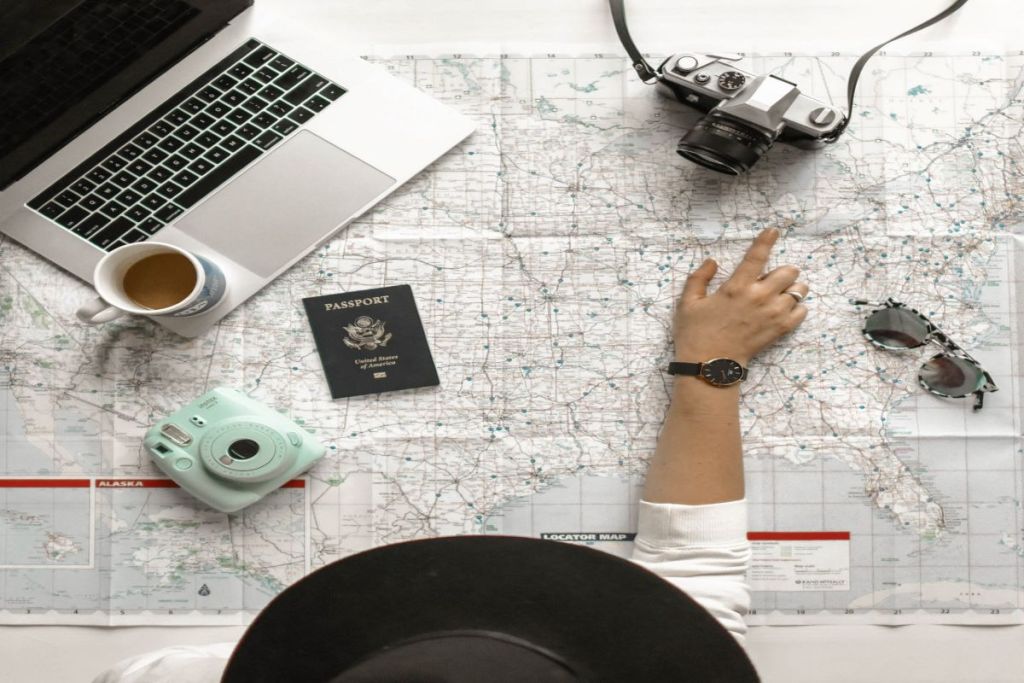Every day, we receive more news about breakthroughs in preventing and treating COVID-19. With the response that most states have seen regarding the vaccine’s rollout, there appears to be a glimmer of hope for summer travel. At the same time, how can we know which locations have restrictions and which are back to almost pre-pandemic reopening? And even so, what if a particular state requires vaccine passports? We have gathered information on this ever-changing topic to help you to make the best decision for a family trip.

What is a vaccine passport?
A vaccine passport would allow you to gain entrance into crowded venues such as a concert, sports event, or theatrical production. Vaccine passports could also open more doors regarding travel to foreign countries, many of which are requiring them or weighing their options. However, the vaccine passports would be different than the cards issued from the CDC upon receiving a vaccination, as those can be forged easily.
Thus, the passport itself would come in the form of an app for smartphone users. For individuals who don’t have a smartphone, a certificate would be issued. These items provide proof that the person has received the COVID-19 vaccine.
For example, New York has started using what’s called an Excelsior Pass for crowded events and large weddings. Likewise, Israel now requires a “Green Pass” to enter hotels, gyms, restaurants, and theaters.
The pros and cons of issuing vaccine passports
Nonetheless, the possibility of issuing vaccine passports has raised some debate. Just like with any topic on public policy, there are two sides to the argument.
Pros
These are the main arguments in favor of vaccine passports:
- Requiring vaccine passports provides strong motivation for people who are still reluctant about getting any one of the three COVID-19 vaccines approved in the U.S. In other words, a person’s desire to “return to normal” would prompt him or her to get vaccinated as soon as possible. With more people vaccinated, countries can reopen their economies more quickly.
- They would provide a stronger sense of security for patrons who enter a crowded venue. People would feel safer knowing that the people around them have also been immunized.
- Vaccine passports could provide better protection for front-line workers in the medical, service, hospitality, and travel fields.
Cons
These are the main arguments against vaccine passports:
- Researchers are still in the early stages of determining the vaccines’ effectiveness against the variants that have cropped up in the U.S. and throughout the world.
- There is a lack of equitable access to the vaccine, especially in rural areas and locations with high populations of low-income people and minorities. With state and local governments still navigating the process of procuring enough vaccines for everyone, some believe that the passport raises more chances of discrimination — whether intended or not.
- As with everything related to technology, it comes with a security risk. People want to feel like their data and health information will remain safe.
- While some business owners and managers view the vaccine passports as a protection again losing patrons, others see it as an infringement on the rights and privacy of their customers.

Which states will require vaccine passports?
Thus far, vaccine passports are not being mandated at the federal level. However, some states will require them, while others are still contemplating the logistics:
- Hawaii: Governor David Ige stated that the technology for a passport is in the works, detailing the state’s plans.
- Illinois: Governor JB Pritzker has not ruled out the idea of a passport, but he has stated that it should be a person’s “personal choice” on whether to obtain one and should not be mandatory for entering any facilities or events.
- New York: As mentioned, New York is moving ahead with the Excelsior Pass.
States that will not require vaccine passports or have introduced legislation against them include:
- Texas
- Georgia
- Arizona
- Arkansas
- Iowa
- Louisiana
- Nebraska
- Maryland
- Montana
- Wisconsin
Most likely, as data continues to roll in, and more studies are conducted on the efficacy of vaccines against variants, more states will implement their own policies.
Whether or not you will need a vaccine passport will likely depend on where you live — and your lifestyle. Those looking to stick close to home may not need one. But if you’re planning a family trip abroad, there’s a good chance those eligible will need a vaccine passport in the near future. The International Air Transport Association, a trade group representing 290 international airlines, is developing Travel Pass, with 23 airlines testing it. Norwegian Cruise Line will require passengers booked through October 31 to be vaccinated.
What about kids?
As of right now, there is no pediatric vaccine for COVID-19 though many companies are in testing stages. Without a vaccine, children can’t get a vaccine passport — and it’s not a guarantee that restrictions will ease for kids. However, the EU has indicated that its proposed digital green passes would show recent COVID-19 results, so children who tested negative could travel.
What does this mean for your family? Before booking that international trip — or buying those ball game tickets — check to see what the venue or destination’s policy is, or whether the destination is looking to institute more stringent measures. There isn’t a universal approach to vaccine passports, and you don’t want to book a trip the whole family can’t enjoy fully.
As we navigate the “new normal,” more information will be presented, and more definitive information will be given about how various parts of the U.S. and the rest of the world will respond to the idea of instituting a vaccine passport of some kind. In the meantime, we can continue to stay current on any trends and do our best to protect ourselves and our families.
Editors' Recommendations
- Heads up, 7 up: What’s the game and how to play it
- 4-year-old birthday party ideas: 7 low-stress themes your child will love
- Baby play mat ins and outs: What age you should get one and the benefits for baby’s development
- The Floor is Lava! game: Fun for the whole family to play
- Is your 4-year-old chewing on their shirt symptomatic of something wrong? What you need to know


